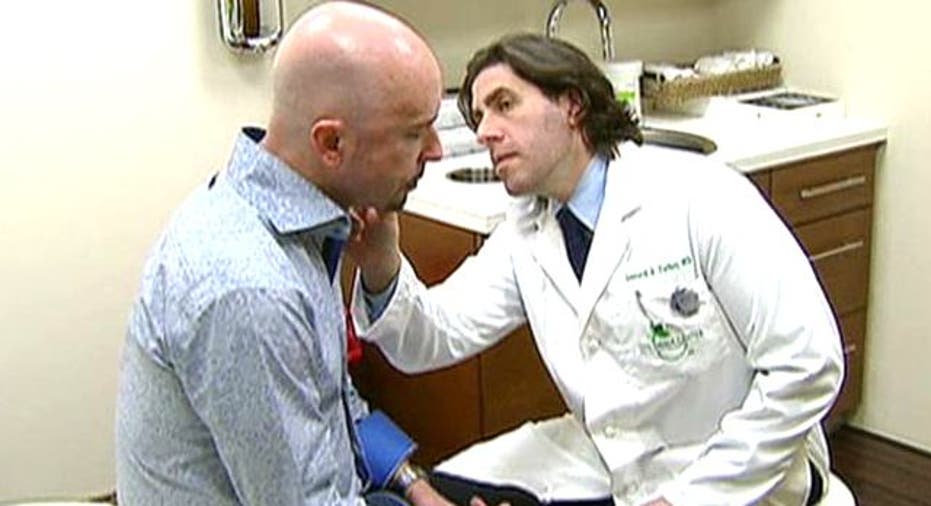My Surgery Costs What? Curbing Health-Care Costs by Shopping Around

Uninsured patients needing medical treatment for routine procedures and want to find the best price face an uphill battle in an industry that is constantly in flux.
A new study, published in JAMA Internal Medicine, found vastly different price quotes for the same procedure from 122 hospitals across the country. Researchers led by Jaime Rosenthal, a Washington University student, called hospitals in every state, claiming their 62- year-old uninsured grandmother needed to pay for a hip replacement out of pocket.
The results were broad ranging, with estimates ranging from as low as $11,000 in total for the procedure to as high as $126,000. The bottom line according to researchers is that hospitals are unprepared to discuss costs.
However, study co-author, Dr. Peter Cram, says the fact that 60% of the 122 hospitals called were able to provide a complete price estimate is a good sign. What’s more, he says the top-ranking orthopedic hospitals’ estimate costs were in line with the typical price of a hip replacement which is typically between $15,000 and $20,000.
But it’s important not to overlook that close to 40% of hospitals called could not provide pricing, says Cram, director of the Division of General Internal Medicine at the University of Iowa. Fifteen percent of hospitals could not provide any price estimates, even when researchers called back up to five times.
Curbing Costs
In order to avoid overspending on elective medical care, Cram suggests consumers treat health-care costs as they would any other purchase in life: shop around.
“My take is power to the people here,” he says. “It’s like a new car, computer or a new phone. If someone told you a gallon of milk costs $13, you would walk out. But if you are in a car accident and are being carted off in an ambulance, you can’t ask as many questions.”
When a procedure is elective, like a hip replacement, it’s important to compare pricing as much as you can ahead of time. Cram likens this to getting estimates on home repairs- the estimates are hopefully in the ballpark of reality, but warns there are always layers of unpredictability.
Another option for curbing costs for those with limited or no insurance coverage is to get treated at an accountable care organization, according to Kip Piper of Health Results Group.
“This will be a lower cost, more efficient, higher-quality and better safety,” he says of these hospitals. “The physicians get together and agree to meet certain qualities and safety standards, as well as consider if they can reduce costs to the payer. “
When asking for a price quote, Piper says to ask what you do and don’t need from the treatment or provider. Ask hospitals straight out if there are options available for negotiation, including payment plans or paying in cash.
“Do I need this particular drug? Is there a less expensive, or equally-effective treatment? Can this be done on an outpatient basis and what is the likelihood of readmission? These are all questions to ask before you are admitted,” he says.
Hurdles and the Future
For the uninsured, shopping around for accurate prices can prove difficult, according to Linda J. Blumberg, senior fellow at The Urban Institute’s Health Policy Center. Having coverage allows for competition among carriers to get the best prices. Because of this, she says unless it is a very specific elective procedure, chances are your price quotes will vary.
“There are an isolated number of procedures you can, as an individual, be reasonable in shopping around for,” Blumberg says. “When you have coverage, the insurer has providers that are preferred in network, or out of network. “
Once all of the Patient Protection and Affordable Care Act is implemented next year, Blumberg says more individuals will have insurance coverage and therefore will not be out seeking cash price quotes on their own.
“State health-care exchanges have the potential to increase competition between carriers and give stronger incentives to bring prices down, but it’s not the same for every case.”
With that being said, Cram says not to take prices at face value.
“Don’t let hospitals walk all over you and say, ‘$25,000 or $125,000, it’s all the same to me,’” he says. “This is complicated because it’s health care, but on the other hand, it’s your life and its worth asking a few questions.”



















